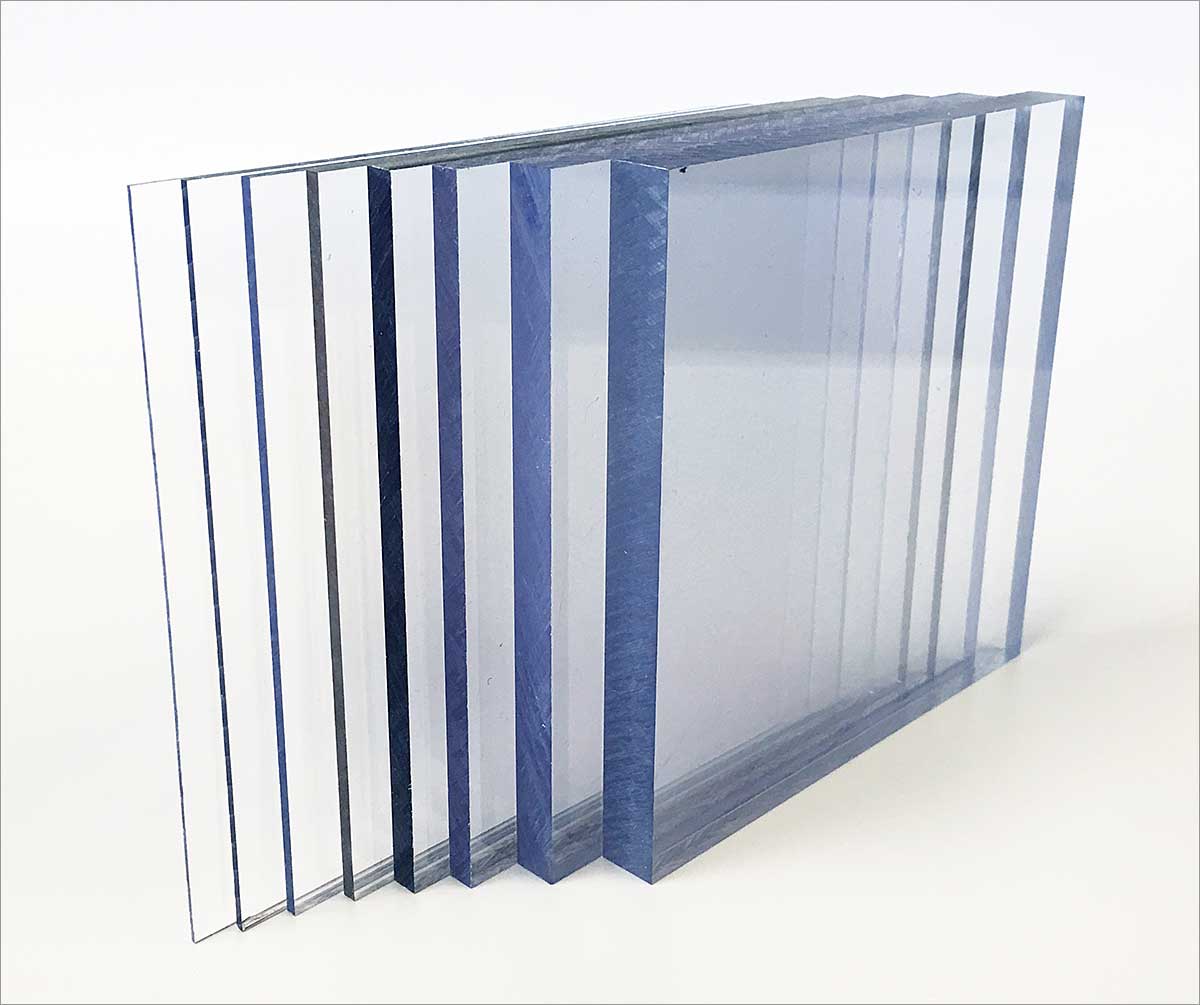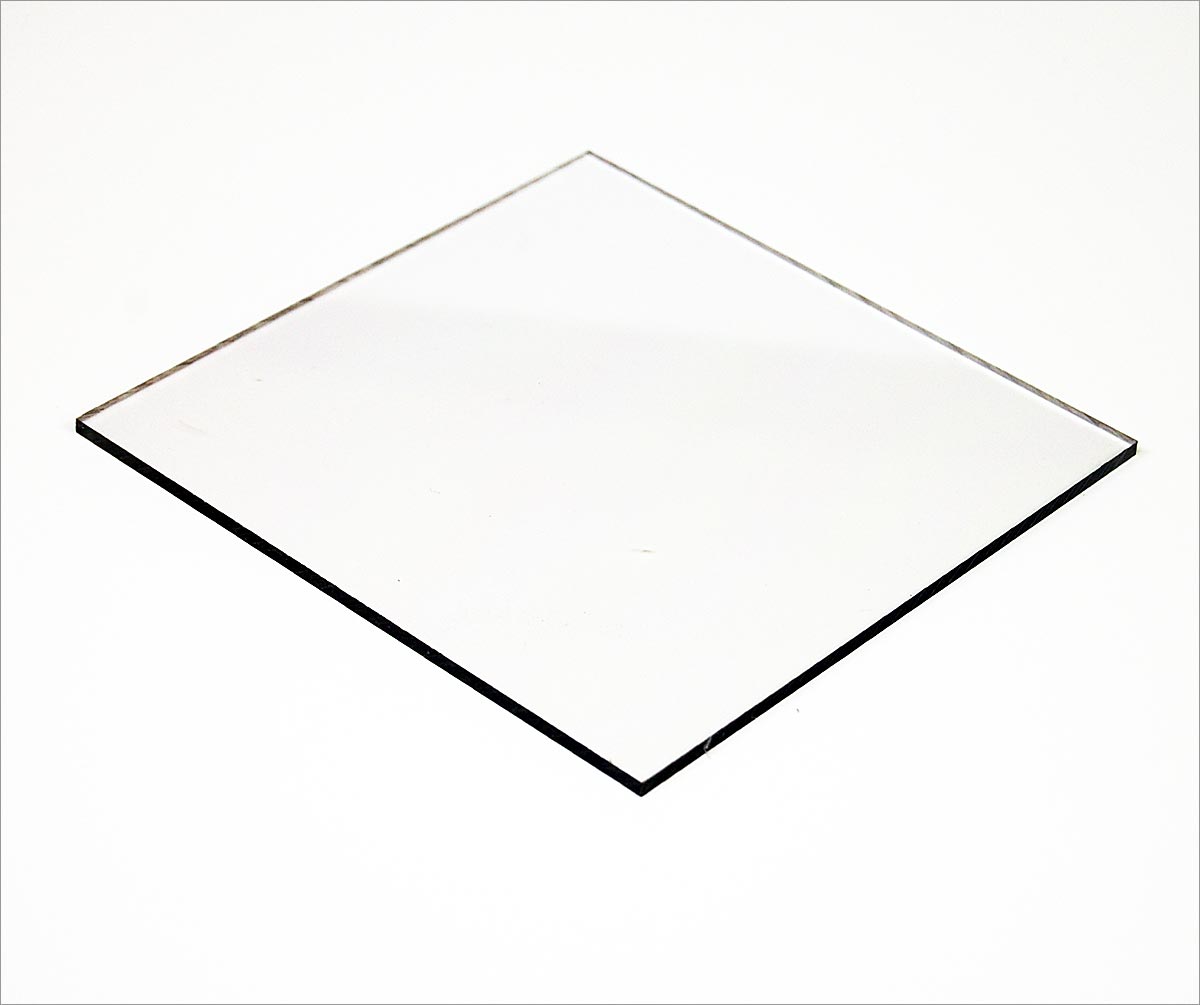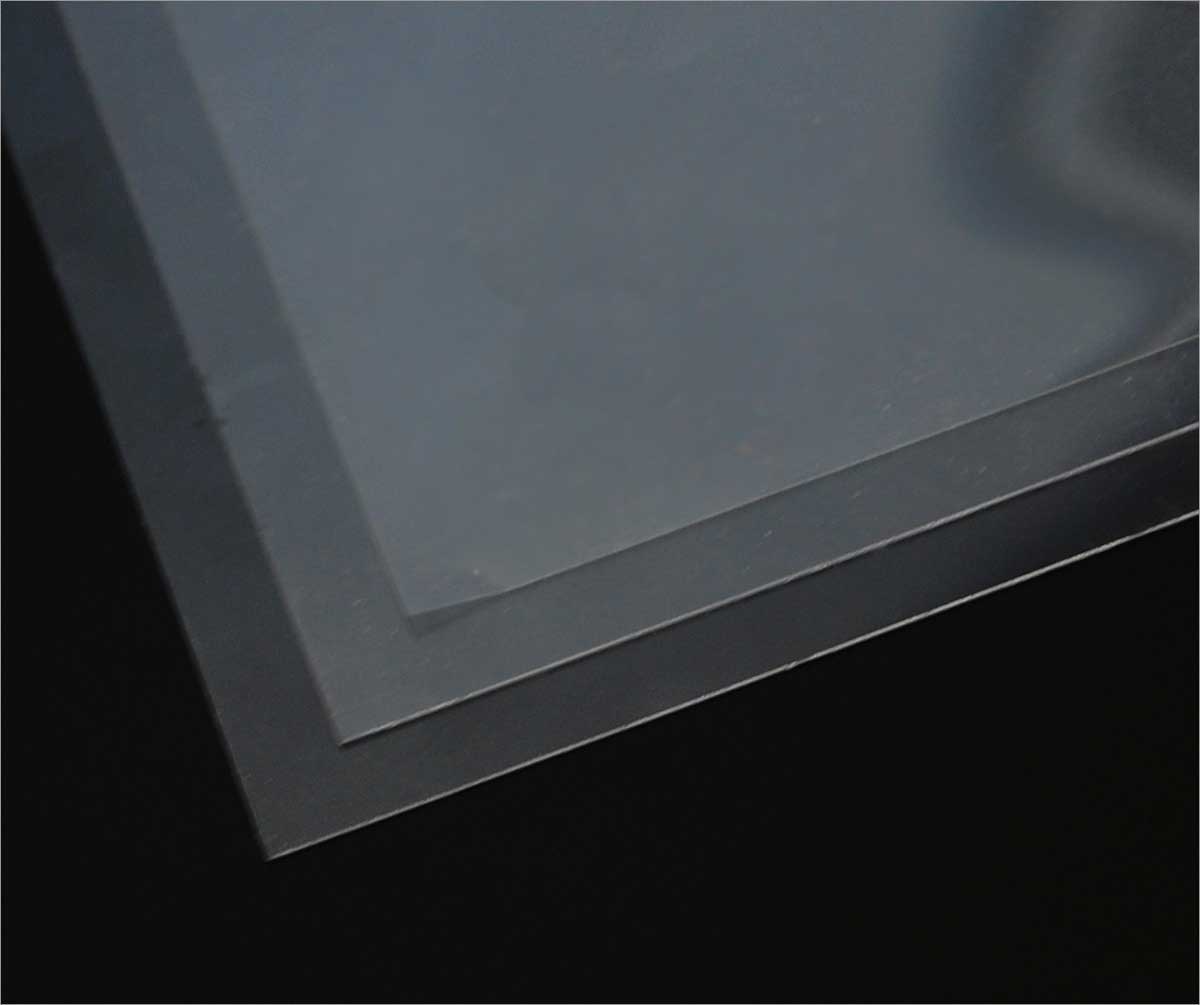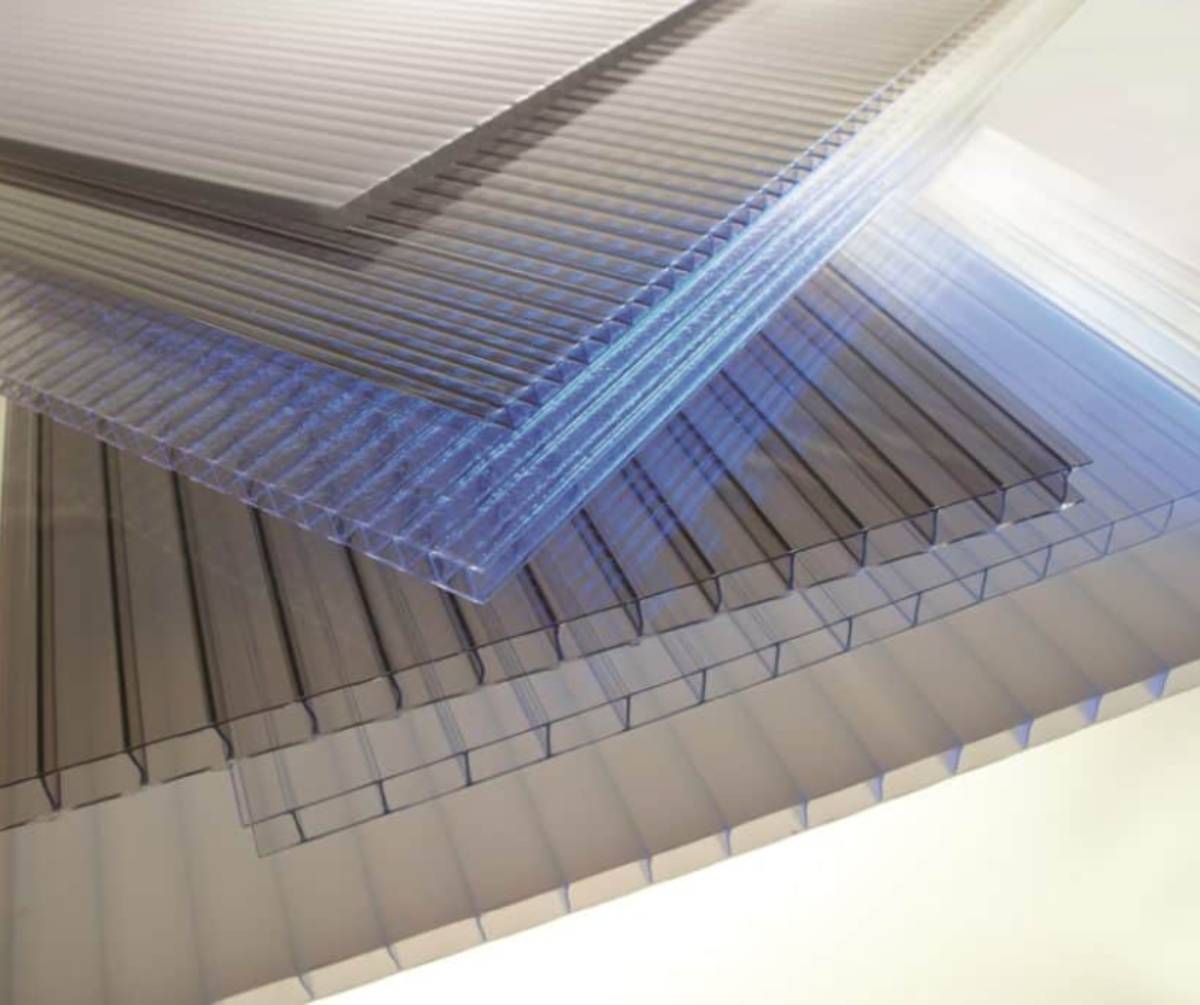Polycarbonate Lexan Sheets
Clear and Colored Polycarbonate
At TAP Plastics, we offer a variety of cut-to-size polycarbonate panels with several colors, grades, and sizes to choose from. The premium polycarbonate sheets we supply are made only by leading manufacturers using the best raw materials in high-tech extruders. Our polycarbonate extruded sheets are high-quality with properties comparable to Makrolon and Lexan UV-protected, non-yellowing sheets. We have abrasion-resistant polycarbonate sheets, thin-gauge polycarbonate, recycled Lexan sheets and other solutions. Optical grade sheets up to two inches thick are available by special order.
Custom-cut polycarbonate sheets are designed to meet the stringent demands of many commercial and industrial applications, such as fabrication, furniture making, curtain-wall framing, lighting, noise reduction, signage, thermoforming, and more. Our customers use polycarbonate in a variety of commercial and residential building projects. Email info@tapplastics.com with sizes and specs for a quote.
Lexan vs Polycarbonate
One of the most common forms of plastic is a group of thermoplastic polymers known as polycarbonates (PC). Also known as Lexan because of the brand’s association with the product, this synthetic resin is a naturally transparent amorphous thermoplastic that can be used to produce a variety of precision machined parts and products, but it’s also frequently used as a replacement for acrylic, glass, and polyethylene. Polycarbonate sheets offer a wide variety of characteristics and features that are well-suited to numerous applications and industries, including agricultural, automotive, construction, electrical, medical, and security, to name a few.
TAP Video: What is Polycarbonate Sheet?
Features and Benefits of Polycarbonate Lexan Sheets
There are many reasons that Lexan glass, as it’s sometimes called, is trusted for industrial applications. Some of the key benefits of a polycarbonate panel include:
- Safety
- Virtually unbreakable
- High impact resistance
- High clarity and light transmission
- UV protective layer
- High flame resistance
- Half the weight of glass
- Easy to machine, handle and install
Weight, tensile strength, thermal expansion, and chemical resistance are all particularly important factors in most applications.
In terms of impact strength, you can’t go wrong with choosing a polycarbonate sheet. This general-purpose thermoplastic is approximately 200 times stronger than glass and polyethylene. Plus, polycarbonate sheets have a higher relative impact strength than acrylonitrile butadiene styrene (ABS), polyvinyl chloride (PVC), polystyrene (PS), polyphenylene oxide (PPO), acrylic, polybutylene terephthalate (PBT), polyethylene terephthalate (PET), and polyamides (nylons). You can rely on this rugged plastic to defend against burglaries or vandalism and reduce the risk of injury related to broken glass.
Although polycarbonate sheeting expands and contracts with temperature alterations, it does not shrink with age. Polycarbonate plastic’s thermal expansion coefficient is over 100 times smaller than polyethylene, making it well-suited to applications where temperature changes are a concern. Another pleasing characteristic of this thermoplastic is that it is very pliable. Polycarbonate’s ductile properties allow it to be cut or cold-formed on site and at room temperature without cracking or breaking, allowing you to make small radius bends in prototyping applications where aluminum sheet metal lacks viability. This ductility allows thermoplastic sheeting to be cold-formed into curves that would otherwise be impossible to construct with laminated glass or acrylic materials.
Impact-Resistant Plastic
This sturdy and highly impact-resistant material also has exceptional clarity and light transmission properties. Unlike glass, polycarbonate cannot be easily broken or damaged in harsh conditions. Polycarbonate sheets are virtually unbreakable, giving them a distinct advantage over glass in terms of safety and security. Clear polycarbonate panels are well-suited to motorcycle fairings, skylights, windows, windshields, and other barriers. Our polycarbonate sheets are also resistant to harmful ultraviolet rays, but that’s not all. It is also resistant to heat, cold, and water damage, making it an excellent option for building barriers, fencing, glazing, roofing, and so much more. We supply transparent and translucent sheets as well as sign-grade white polycarbonate sheeting to suit any need.
One other advantage of polycarbonate sheet that is often overlooked is its ease of cleaning and maintenance. In terms of cleaning polycarbonate, rinse with warm water using a soft cloth or sponge to wash away any surface materials, grit, and grime. You can also use a soft microfiber cloth or non-abrasive sponge to wash with a mild diluted soap or detergent gently. To prevent water spots, you thoroughly dry the glazing with a chamois or moist sponge. Try to avoid abrasive cleaners and cleaning in direct sunlight to prevent streaking.
Applications and Projects
The possibilities of polycarbonate sheets are practically limitless. Polycarbonate sheet is resistant to many common household materials, including beer, coffee, detergents, fish oil, fruit syrup, liquor, milk, mineral water, orange juice, liquor, wine, table vinegar, salad oil, salt solution (10%), tomato juice, vodka and cocoa. Some of the most common polycarbonate applications include cabinet doors, cell phones, countertops, eyeglass lenses, greenhouses, light bezels, machinery guards, office dividers, plant nurseries, protective visors, riot shields, swimming pool enclosures and much more. We also offer an abrasion-resistant polycarbonate for high-traffic areas and exterior applications.
A Lexan sheet can be shaped and assembled in a variety of ways. Here are the methods with which you can turn a polycarbonate panel into the items we mentioned above:
- Fabricating: Sawing, routing, shearing, laser cutting, die cutting, and drilling.
- Fastening: Mechanical fastening, solvent bonding, transfer tape bonding, and welding.
- Finishing: Sanding, jointing/planning, solvent polishing, hot stamping, screen printing, painting.
- Forming: Brake bending, cold bending, thermoforming, molding, drape forming, and strip heating.
- Glazing: Curtain-wall framing with either a wet or dry glazing system.
Polycarbonate Sheets Available Online or Pick-up at a Store Near You
Our current polycarbonate collection allows you to choose between clear, transparent gray, and sign white. You can also specify the width, length, and quantity of polycarbonate sheeting you require to make covered walkways, POP displays, machine guards, skylights, storefronts, and so much more. Cut-to-size requests may take one to two business days to process, or you can visit one of our store locations to get customized polycarbonate panels in five minutes or less, from start to finish. We can also customize PC sheets with rounded edges, radius corners, or holes.
- Thicknesses: 0.015", 0.02", 1/32" (0.03")-thin gage sheets, 1/16" (0.060"), 3/32" (0.093"), 1/8" (0.118"), 3/16" (0.177"), 1/4" (0.236"), 3/8" (0.375"), 1/2" (0.472").
- Colors: All thicknesses available in clear. Solar gray is available in 1/8" (0.118"), 3/16” (0.177”) and 1/4" (0.236"). Sign white is available in 1/8" (0.118").
Whether you are looking for durability or aesthetics, polycarbonate sheets can save you time, money, an efficiency, all while reducing the risk of injury during installation. With more than 60 years of experience distributing high-quality plastics, we are confident in our ability to help you locate the materials you need to complete any project with confidence. Plus, our cut-to-order services make it easy to get the exact size sheet you need. If you need any assistance in determining which grade of polycarbonate best fits your needs, please feel free to contact us today to speak with a thermoplastic expert. Let us know how we can help you turn your vision into reality!
Additional Polycarbonate Resources & Information
- Thin Gauge Polycarbonate Sheets
- Abrasion Resistant Polycarbonate Sheets
- Physical properties of polycarbonate sheets
- Fabrication guide for polycarbonate sheets
- Fractions, decimals and millimeters conversion chart for polycarbonate sheets
- RoHS 3 Statement
- Reach Statement
Polycarbonate Sheets FAQ
Q1: What is a major disadvantage of polycarbonate sheets?
A1: One disadvantage of polycarbonate sheets is their susceptibility to scratching. Although this can be avoided by choosing TAP's scratch-resistant polycarbonate. Additionally, while typical polycarbonate yellows with exposure to the sun, TAP polycarbonate is UV-resistant and wont yellow, allowing for great use in outdoor applications.
Q2: Does polycarbonate break easily?
A2: Polycarbonate is difficult to break due to its exceptional impact resistance and toughness. It has 250 times the impact resistance of glass and is 30 times stronger than acrylic. It's often considered the unbreakable plastic. There are several reasons for its high strength:
- Molecular structure: Polycarbonate has a unique molecular structure characterized by a long chain of repeating units. This structure creates strong intermolecular forces, resulting in a highly durable material.
- Amorphous nature: Polycarbonate is an amorphous thermoplastic, meaning it lacks a regular crystalline structure. The absence of crystal boundaries makes it less prone to fracture and allows for greater flexibility and impact resistance.
- High ductility: Polycarbonate exhibits high ductility, meaning it can undergo significant deformation without breaking. It can absorb and distribute impact energy over a larger area, making it less likely to shatter.
- Impact modifiers: Polycarbonate sheets often incorporate impact modifiers during the manufacturing process. These additives enhance the material's toughness and ability to withstand sudden shocks or impacts.
These combined factors contribute to polycarbonate's ability to resist breaking, making it a preferred choice for applications that require robust and durable materials, such as safety goggles, bullet-resistant windows, protective shields, and automotive components.



